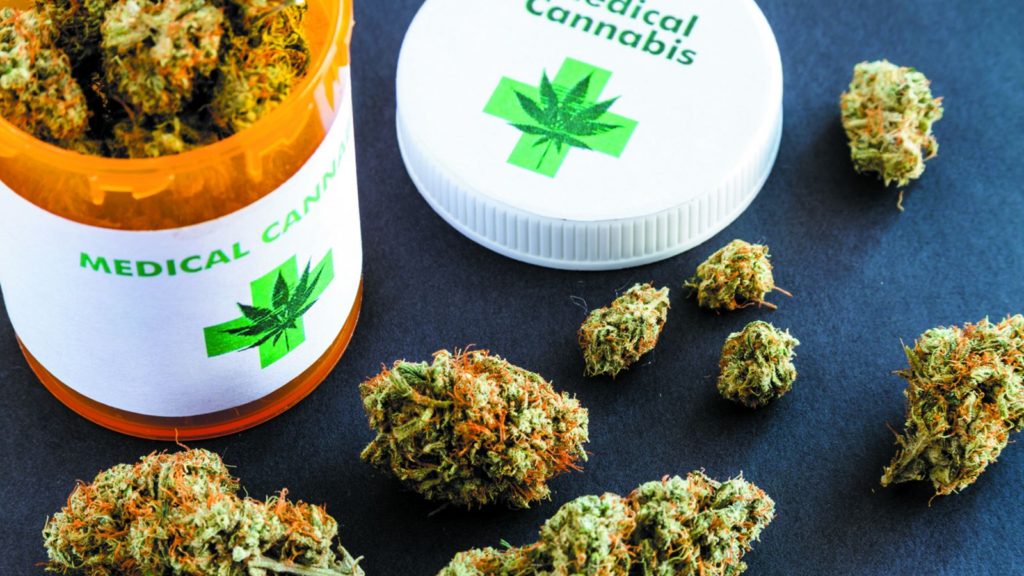
Parts of the cannabis plant have been used as herbal remedies for decades, if not centuries. Today, if you live in a state that has legalized medical marijuana, you can get seeds from a homegrown cannabis company and grow it yourself or opt to purchase it from a cannabis dispensary. Not that there is any difference between recreational and medical marijuana. They are exactly the same product grown from the same seeds, be they feminized or autoflowering cannabis seeds. Details:The only difference is medical marijuana is taken with the sole purpose of relieving medical symptoms, and it has more CBD than THC, making it more therapeutic than psychoactive. There are many marijuana magazines that offer more in depth information on these topics.
Reservations That Surround The Use Of Cannabis As Medicine
Currently, marijuana has been approved for medicinal purposes in 22 states and Washington DC. The cannabis plant has over 100 chemical substances called cannabinoids, some of which have healing benefits. The concept of marijuana as medicine is, however, yet to be approved by the U.S. Food and Drug Administration. This is because it is considered a Schedule I drug just like LSD, heroin, and ecstasy. Arguments claim it could lead to addiction or be a gateway drug for the use of other drugs. The FDA has, however, approved the use of certain cannabinoids in drugs. These include nabilone and dronabinol for the treatment of chemotherapy side effects such as vomiting and epidiolex as a remedy for Dravet Syndrome and Lennox Gastaut Syndrome.
Conditions Medical Marijuana Is Prescribed For
Sleep Disorders
Certain sleep disorders can qualify one for a medical marijuana prescription. These include insomnia and sleep apnea. People who have trouble sleeping can try out cannabis in regulated amounts to help with this. According to a 1973 study that was later echoed in another 2013 study, marijuana decreases the time it takes an insomniac to fall asleep. On average, it should take you at most, 10 to 15 minutes to fall asleep. If you have ever used Cannabis even for recreational purposes, you can attest to the fact that it induces drowsiness and decreases sleep latency. Additionally, it curtails the number of times one wakes up at night, consequently improving the quality of sleep.
Sleep apnea, which is characterized by loud snoring and feeling exhausted even after sleeping for an entire night, can be treated with Cannabis. It is a condition whereby one repeatedly starts and stops breathing while they sleep, and it affects approximately 25 million Americans. When someone with sleep apnea takes Cannabis, either through smoking, vaping, eating, topical application, or placing a few drops under their tongue, THC present works to regulate their respiration. It is said that Cannabis reduces sleep apnea by a significant 42%.
Pain
Cannabisis used to relieve both chronic and acute pain. Some people argue it could be used in place of opiates, while others suggest it should be used in conjunction. Currently, Cannabis is used to relieve pain from migraines, childbirth, cancer, and chronic diseases. According to a 2015 review that looked at 28 studies and a 2018 one that looked at 47 studies, patients who took medical marijuana had a 30% reduction in pain. This is in comparison to a 26% pain reduction for patients on placebos.
Sixteen studies were also carried out on the effectiveness of Sativex in reducing neuropathic pain, all of which concluded it was instrumental, only that it had unfavorable side effects. The mechanism behind Cannabis for pain relief is simple. The body has peripheral nerves that recognize pain and send signals to the brain. These nerves have cannabinoid receptors. When one takes in cannabinoids from marijuana, the receptors block the peripheral nerve associated with pain, thereby suppressing pain.
Anxiety
A couple of studies have indicated that taking medical marijuana can help people with anxiety disorders or anxiety in general. According to one which involved 24 participants, all of whom had a social anxiety disorder, individuals who took CBD had less anxiety when doing a public speaking test than those who took placebos. Four other studies inferred the usefulness of Cannabis in relieving anxiety brought about by chronic pain. You see, the body naturally has an endocannabinoid system. When you take marijuana, it activates CB1 and CB2 receptors in this system. These receptors, in turn, trigger the production of neurotransmitters. These neurotransmitters are what bring about feelings of happiness and pleasure in the process of relieving anxiety.
PTSD
PTSD patients who are on cannabis-based medications show great improvement compared to those strictly on antidepressants and anxiety meds. As per a scientific study conducted by the NYU Langone Medical Center, people with PTSD had limited amounts of a naturally occurring cannabinoid called anandamide. Taking marijuana increases the levels of this particular cannabinoid which in adequate amounts, stimulates good mood and feelings of happiness. Some cannabinoids also prevent the retrieval of traumatic memories preventing nightmares that are common with PTSD patients.
Arthritis
There are over 100 variances of arthritis, which is a condition characterized by joint inflammation. In one study, 58 participants with rheumatoid arthritis were given Sativex treatment for a period of 5 weeks. The drug, which is an oromucosal spray, was administered in the evening. Assessments were then carried out in the morning. The findings were that patients on the treatment suffered less pain when moving or resting and slept better. The researchers also witnessed decreased disease activity.
Epilepsy
Studies on the use of CBD in treating severe forms of epilepsy that are resistant to other pharmaceutical drugs were done extensively. It turns out marijuana reduces not only the frequency of epileptic seizures but also their severity. The use of the cannabinoid Epidiolex, which is pure oral CBD for treating two rare forms of epilepsy, namely Lennox Gastaut Syndrome and Dravet Syndrome, was approved by the FDA in 2018. It is, however, important to note that the FDA version is manmade and not from the Cannabis plant.
Medical marijuana can also be prescribed for cancer, irritable bowel syndrome, appetite loss, and multiple sclerosis. It is additionally used to manage symptoms of HIV/AIDS. According to a Journal of Pain and Symptoms study, a group of researchers who gave AIDS patients medical marijuana witnessed a 94% reduction in muscle pain and a 97% increase in appetite among participants. Nevertheless, while medical marijuana has proven helpful in relieving certain symptoms and conditions, further research needs to be done on how effective Cannabis is for treatment and how the adverse side effects can be managed.








